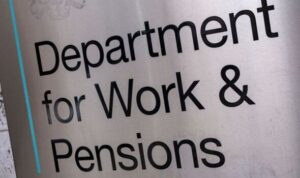
Benefits should rise by 1.7 percent from April after inflation dropped below the Bank of England’s two percent target in September.
The Office for National Statistics (ONS) said on Wednesday (October 16) thatConsumer Prices Index (CPI) inflation fell to 1.7 percent last month, from 2.2 percent in August.
Increases in some benefits and Tax Credits, including Universal Credit, are usually tied to September’s CPI figure, suggesting increases of 1.7 percent are likely.
The benefits which the Government is legally bound to increase in line with inflation are:
- Personal Independence Payment (PIP)
- Disability Living Allowance
- Attendance Allowance
- Incapacity Benefit
- Severe Disablement Allowance
- Industrial Injuries Benefit
- Carer’s Allowance
- Additional State Pension
- Guardian’s Allowance
Attendance Allowance should see its lower rate go up to £73.90 per week while the higher rate should rise to £110.40. Carer’s Allowance should increase to £83.30 while Child Benefit for the first child should increase to £26.05 per week, with £17.25 for each additional child.
The daily living component of PIP should rise to £73.90 for the lower rate and £110.40 for the higher. Universal Credit’s standard allowance for a single person aged over 25 is expected to increase to £400.14 per month.
The date of the increases should vary depending on the benefit. Next year’s 1.7 percent rise compares to the 6.7 percent hike of April this year and the 10.1 percent rise in 2023, when Britons were grappling with double digit inflation in the midst of a cost-of-living crisis.
Other benefits, including Universal Credit, usually rise as well but are subject to approval by Parliament.
MoneySuperMarket founder Martin Lewis warned this week that the amount which can be taken off benefit payments in the form of deductions or sanctions could also increase from April.
Chancellor Rachel Reeves is to officially confirm benefit and state pension increases in the Budget on October 30.
It is understood that Ms Reeves will seek to make around £3billion of cuts to welfare over the next four years by restricting access to sickness benefits.
Under Conservative proposals, welfare eligibility would have been tightened so around 400,000 more people who are signed off long-term would be assessed as needing to prepare for employment by 2028/29, reducing the benefits bill by an estimated £3bn.
It is believed Ms Reeves will commit to the plan to save £3bn over four years, but Work and Pensions Secretary Liz Kendall will decide how the system will be changed in order to achieve this.
Ms Reeves is looking to raise up to £40bn from tax hikes and spending cuts in the Budget as the Government seeks to avoid a return to austerity.
















